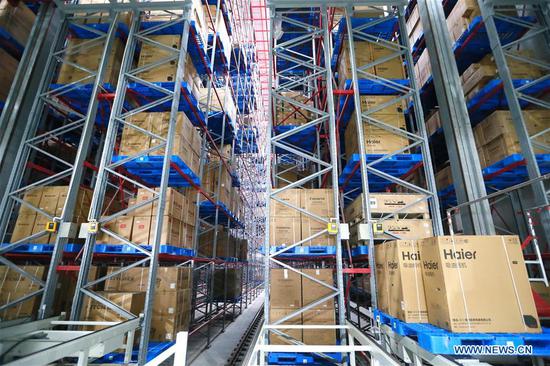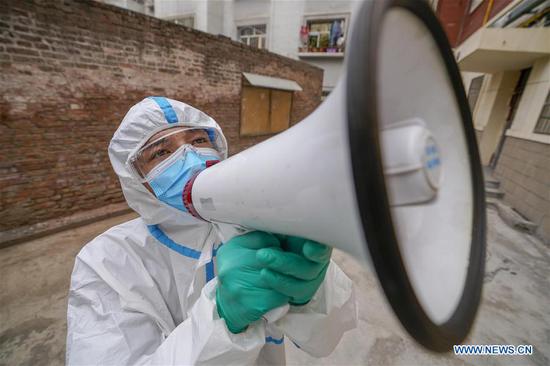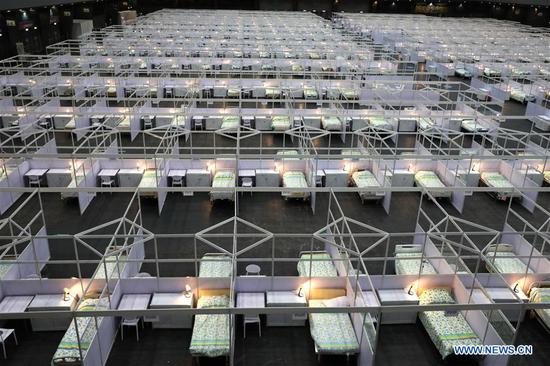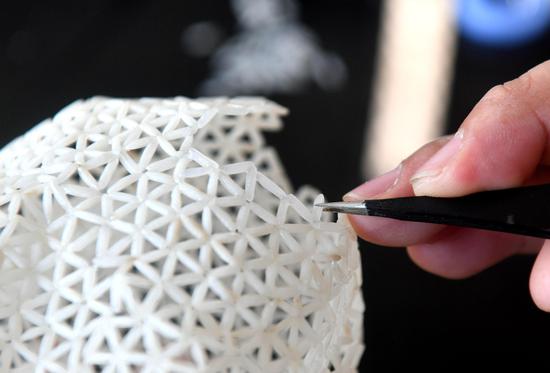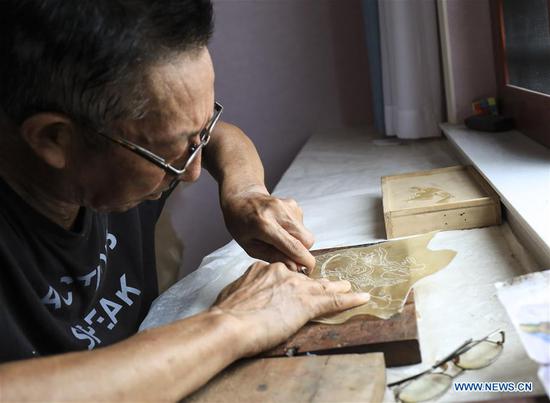
An employee stacks copper pipes at a factory in Diankou, Zhejiang province. The local government launched a series of measures to boost work resumption from February this year. (Photo/Xinhua)
Most small and medium-sized start-ups in China are confident in their ability to innovate despite pressure from the intensified competition, market uncertainties and challenges created by the COVID-19 pandemic, a new report said.
About 92 percent of 605 surveyed SME start-ups said their innovation capabilities are better than their peers, showing confidence in their own prowess, said a report jointly released by US tech heavyweight HP and Peking University's Guanghua School of Management.
Healthcare and biomedicine, financial technology, digital technology and smart hardware are the four industries that have highest scores for overall innovation capabilities and they are relatively less vulnerable to risks created by the COVID-19 pandemic, the report added.
"It showed that digital upgrades and technological empowerment can in reality boost innovation and business performance," said the report, which surveyed and interviewed executives of SMEs in municipalities and provinces of Beijing, Tianjin, Hebei, Jiangsu, Zhejiang, Shanghai, Sichuan and Chongqing.
About 45 percent of surveyed companies said maintaining the ability to continuously innovate is their biggest challenge, while 43 percent said the main hurdle lies in how to balance and solve a series of problems that come along with rapid development.
Some 38 percent of companies said that market uncertainty is one of the main risks for business development, with 31 percent adding that they are under tremendous competitive pressure.
Gao Yan, a professor at the Guanghua school, said start-ups can hone their internal skills in accordance with scientific management processes. Tech companies can work hard to build their technical moats and traditional enterprises can embrace digital technology to create new opportunities.
"But amid mounting difficulties, both internal endeavors and external support are needed to help them overcome challenges. Favorable government policies, strategic guidance from academic research institutions and large enterprise support are also needed," Gao said.
Zhou Xinhong, vice-president of HP China, said SMEs are an important starting point for economic recovery in the contagion-related era. Under intense pressure, they are facing dilemmas such as falling profits, tight cash flow and a restructuring of the supply chain. HP aims to offer them help.
The company has built an entrepreneurial ecosystem for start-ups, which not only offers professional curricula such as finance and management, but also provides industrial insights. HP also partnered with companies including Tencent and entrepreneurship-focused media outlets to help start-ups in financing and social networking.
As SMEs have emerged as important pillars that support both the economy and social stability, the central government also rolled out a string of policies to help them.
A new regulation on ensuring timely payments to SMEs will go into effect on Sept 1. Key measures also include guiding commercial banks to further increase credit for smaller businesses.
Policymakers have encouraged SMEs to expand equity financing through initial public offerings and venture capital investment, availing themselves of the adoption of the registration-based IPO system. They also asked for increasing bond products for SMEs.
SMEs have showed a recovery trend with major economic indicators shifting from negative to positive in the second quarter. SME revenue saw an increase of 8.6 percent year-on-year in April and 3 percent year-on-year in May, with total profits rising 14.9 percent and 14.1 percent, respectively, said the Ministry of Industry and Information Technology, the nation's top industry regulator.
Analysts also said SMEs need to accelerate their push for digital transformation to gain key momentum in the market amid disruptions from the COVID-19 pandemic.
Huai Jinpeng, executive vice-president of the China Association for Science and Technology and an academician of the Chinese Academy of Sciences, said smart technologies such as big data, cloud computing and artificial intelligence are leading to the next round of industrial revolution, and are offering new growth opportunities for SMEs.









